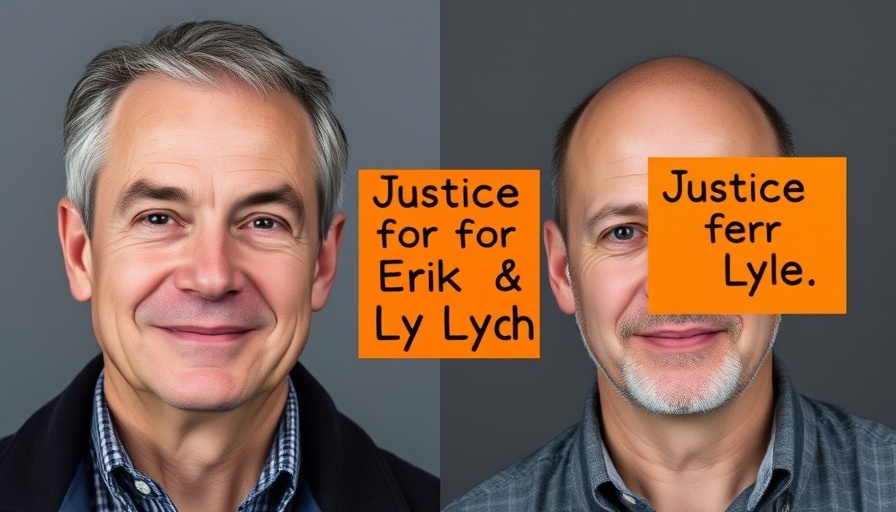
Menendez Brothers: A New Chapter After Decades Behind Bars
In a significant development that could alter the course of their lives, Erik and Lyle Menendez, convicted of the notorious 1989 murder of their parents, Jose and Kitty Menendez, achieved a crucial milestone in their legal battle for freedom. A Los Angeles County Superior Court judge, Michael Jesic, ruled that their resentencing hearings can proceed, despite resistance from the current district attorney.
The Emotional Toll of a Long-Running Saga
Erik and Lyle Menendez have spent more than three decades in prison, sentenced to life without the possibility of parole after being tried for the murder of their wealthy parents in their Beverly Hills home. At the ages of 18 and 21, they were thrust into the public eye, the tragic tale capturing national attention and sparking widespread debate about familial violence and mental health issues. Now, with their resentencing hearings set for April 17 and 18, the brothers argue that years of alleged abuse at the hands of their parents should warrant a reconsideration of their sentences.
The Legal Tug-of-War: District Attorney vs. Defense
District Attorney Nathan Hochman criticized the previous administration's push for resentencing as a politically motivated act that disregards the truth. He referred to the former district attorney George Gascón's decision as an "insane" ploy that failed to reckon with the gravity of the brothers' crimes. However, Judge Jesic's ruling indicates a willingness to allow the brothers' claims of rehabilitation and self-defense to be examined in court, setting the stage for a tense confrontation between prosecutors and defense attorneys.
Claims of Abuse: Fact or Manipulation?
The brothers maintain that their actions were fueled by years of traumatic experiences, which they allege included sexual abuse by their father. This narrative has drawn mixed reactions. Some see it as a desperate attempt to garner sympathy, while others recognize the complexities of abuse dynamics in the family structure. In a poignant moment in the courtroom, the defense attorney, Mark Garagos, condemned the prosecution's methods, criticizing the insensitive display of crime-scene photographs during hearings which could deeply impact the victims' families.
Imminent Decisions: What Lies Ahead?
With significant pressure on the state's parole board to weigh in on the Menendez brothers' future, their case is emblematic of broader conversations about justice, rehabilitation, and redemption in the U.S. criminal justice system. As of now, they could potentially be released if the parole board recommends it and Governor Gavin Newsom endorses their clemency plea, even if the judge denies the resentencing requests.
Public Interest: The Media Spotlight
As this high-profile case continues to unfold, public interest remains remarkably high, with media coverage reigniting debates over parental abuse, mental health, and the morality of capital punishment. People are questioning justice's role in addressing the issues of crime born out of familial dysfunction while also emphasizing the importance of holding individuals accountable for their actions.
The upcoming hearings will not only scrutinize the specifics of the Menendez case but may also influence future legislation regarding juvenile offenders and the standards for rehabilitative opportunities. As they seek to recount their experiences in court, many are awaiting the outcome, hopeful for a verdict that could pave the way for restorative justice.
What You Can Do
The story of Erik and Lyle Menendez challenges us to reflect on our criminal justice system and its approach to cases involving childhood trauma. Engage in conversations, educate yourself on issues of abuse, and consider the implications of past acts of violence on future generations. Delve into local community discussions or online forums that address similar issues. Your awareness and involvement can be a powerful catalyst for change.
 Add Element
Add Element  Add Row
Add Row 



 Add Row
Add Row  Add
Add 


Write A Comment